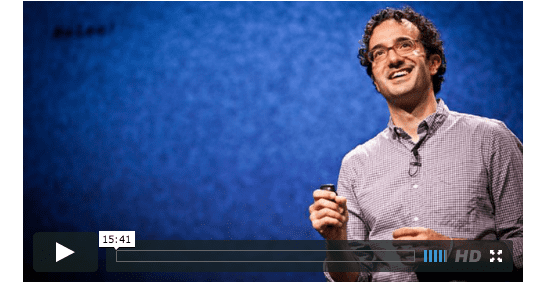I’m an enormous admirer of WNYC’s Radiolab and its producer, Jad Abumrad. In this excellent talk from PopTech, Abumrad shares some fascinating examples of how sound has been used to facilitate scientific discovery and how audio can serve as the trial-and-error mechanism fundamental to scientific inquiry. From what a monkey brain sounds like when playing rock-paper-sciessors to how crayfish “hear” their way to survival, Abumrad takes us on a delightfully geeky journey into the biological basis of behavior.
You will find scientists who will tell you — and they deeply believe it — that we’re quantifiable. We are knowable. That if I can take a high enough resolution picture of all of you — not just your outsides, but your genes, your DNA, all the way down to your atoms — I can know everything about you and everything that you will be. There are people who believe this. And what this tells me is, no. No! All the way down, to the bottom of our thoughts, there’s just more mystery.
For more on the intersection of sound, science and being human, don’t miss our selection of 7 must-read books about music, emotion and the brain from earlier this morning.



